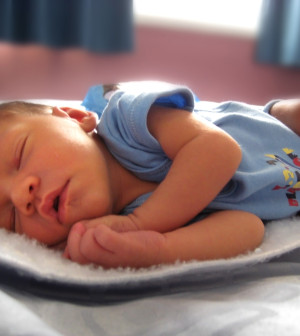- Could Your Grocery Store Meat Be Causing Recurring UTIs?
- Are You Making This Expensive Thermostat Error This Winter?
- Recognizing the Signs of Hypothyroidism
- 10 Strategies to Overcome Insomnia
- Could Artificial Sweeteners Be Aging the Brain Faster?
- Techniques for Soothing Your Nervous System
- Does the Water in Your House Smell Funny? Here’s Why
- Can a Daily Dose of Apple Cider Vinegar Actually Aid Weight Loss?
- 6 Health Beverages That Can Actually Spike Your Blood Sugar
- Treatment Options for Social Anxiety Disorder
Almost 3 in 10 Women Get Pregnant Naturally After Fertility Treatments

Nearly one-third of women who have infertility treatments get pregnant naturally within a few years of stopping treatment, a new study suggests.
Researchers conducted an online survey of 403 women who had infertility treatments called assisted reproductive technologies (ART), such as in-vitro fertilization.
Ninety-six women didn’t get pregnant during treatment. But, 34 of the women later got pregnant naturally.
Three hundred and seven women conceived while receiving infertility treatments. After treatment, 84 of those women were able to conceive naturally, the researchers said.
Most — 87 percent — of the natural conceptions occurred within two years after the end of infertility treatments, the research revealed.
The authors of the study did note potential limitations of their work, however. For example, they said women who had successful pregnancies might have been more likely to respond to the survey.
The study was published July 25 in the journal Human Fertility.
The findings show that “regardless of the outcome of [ART] treatments — whether the patients conceived or not — there is about a 30 percent likelihood of conceiving over a six year period,” study author Dr. Samuel Marcus said in a journal news release. Marcus is an obstetrician/gynecologist at Queen Elizabeth Hospital and Lewisham University Hospital in London.
“This is really useful information that doctors can use to counsel patients about their chances of pregnancy after undergoing assisted conception,” journal editor Allan Pacey said in the news release.
“It certainly suggests that there remains a reasonable chance of spontaneous pregnancy after [ART] has been attempted,” Pacey added.
More information
The U.S. Office on Women’s Health has more about infertility.
Source: HealthDay
Copyright © 2026 HealthDay. All rights reserved.










